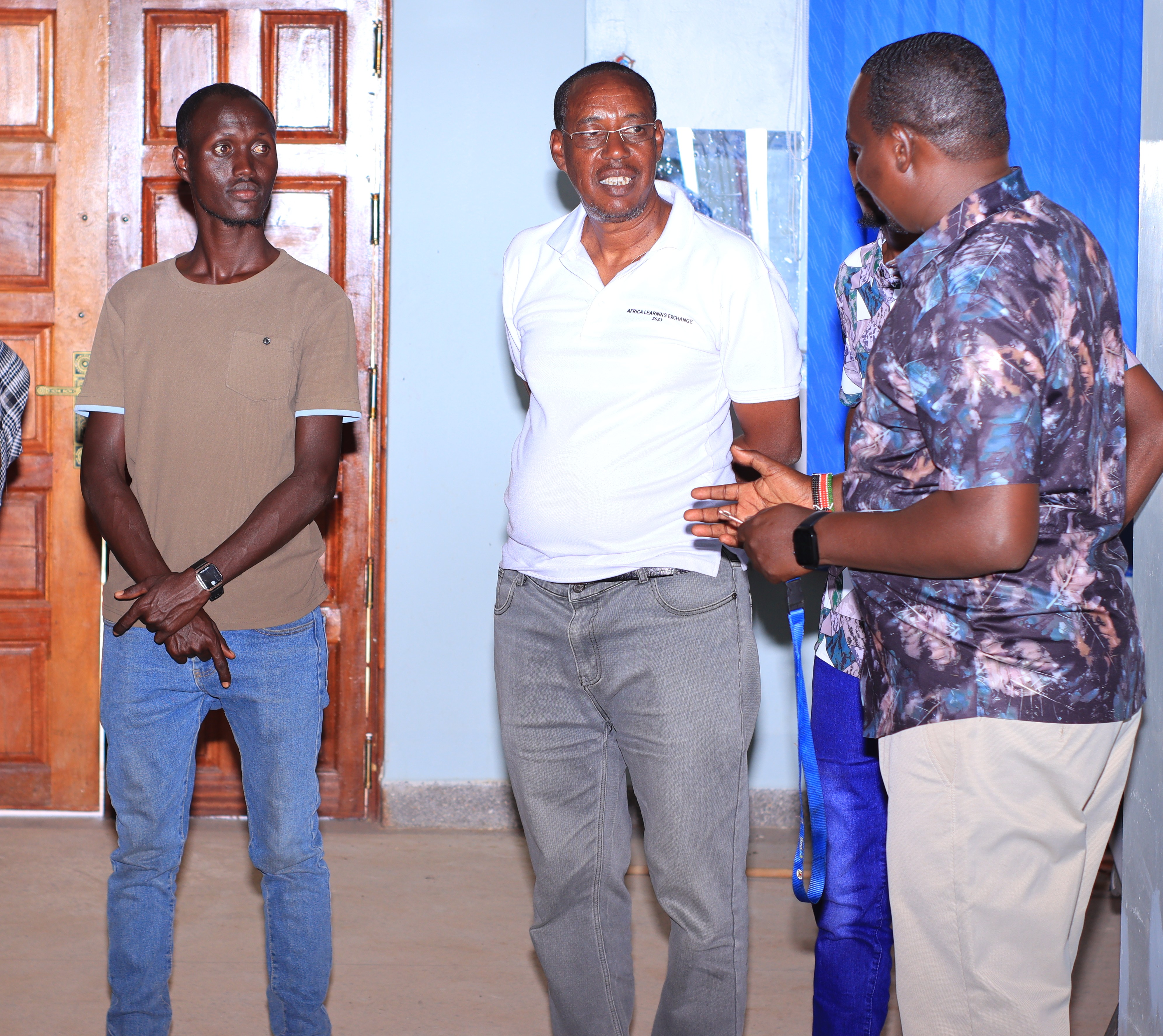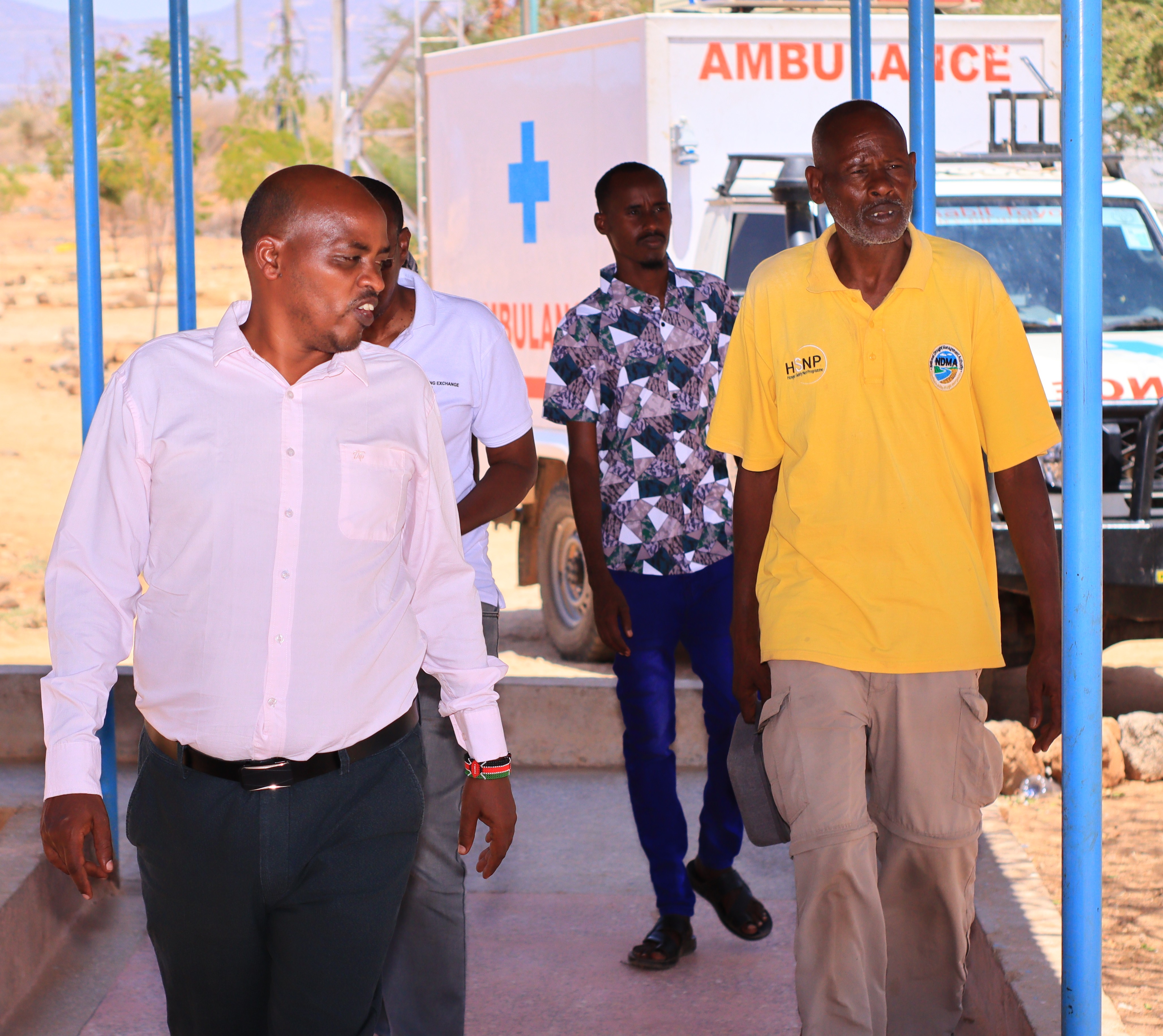 Laisamis ward committee members and budget champions interact
with the Laisamis hospital management.
Laisamis ward committee members and budget champions interact
with the Laisamis hospital management.
Residents of Laisamis in Marsabit county have demanded that the government prioritises essential projects in their area during the national and county budget-making process.
Speaking during a community awareness forum in Laisamis town convened by Rebuilding Pastoralist Livelihoods organisation, participants called for a shift toward human rights-based budgeting, saying it was time citizens took charge of how public funds were used.
David Lepati, a committee member from Merile ward, lamented years of broken promises and missing funds meant for development.
“When Kenya adopted devolution in 2010, the promise was simple: put resources closer to the people,” he said. “Fifteen years later, that dream is struggling under the weight of corruption, opaque decision-making, and ghost projects. That’s exactly what we’re seeing in our area.”
Another participant, Samuel Kasia, voiceration over the frequent reallocation of supplementary budgets to what he described as less important projects.
“Unfortunately, there are no clear standards guiding how funds are used. What follows is misappropriation and misplaced priorities,” Kasia said.

REPAL project manager James Orre said that for any budget to
be effective, it must link people,
data, and process.
“A rights-based approach empowers
citizens to know and claim their rights, demand accountability, and push for
equality in allocation,” he explained. “It also strengthens state institutions,
ensuring that funds are not just allocated but actually delivered where they
matter.”
The human rights-based budgeting
campaign was launched in Marsabit in 2023 and has so far reached Laisamis,
Sagante-Jaldesa, and Turbi wards.
And change is already taking shape.
In the 2024-2025 fiscal year,
Marsabit county allocated Sh30
million to Laisamis ward. Instead of letting officials dictate how the
money would be spent, community budget champions successfully lobbied for Sh24 million to go toward upgrading Laisamis Level 4 Hospital.
The funds were used to purchase a
power generator, repair a transformer, acquire an ultrasound machine, and
construct staff houses.
Laisamis hospital CEO Liban Wako credited the community’s
vigilance for the visible progress.
“These examples show that
rights-based approaches don’t just increase transparency—they deliver results,”
he said. “The impact is clear, and there are no grey areas.”
Kenya’s experience with public
participation has often been mixed—many exercises reduced to box-ticking
sessions where communities are “consulted” but ultimately ignored. Yet, the Constitution of Kenya 2010
explicitly places citizens at the heart of the budget-making process.
As Laisamis residents continue to
push for transparency and inclusion, their story stands as a reminder that when
communities own their budgets, development
stops being a promise—and becomes progress.












